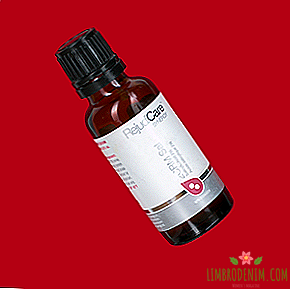Affects everyone: Why high blood pressure should be treated
Every fifth adult in the world suffers from arterial hypertension, and many of them do not even realize it. Symptoms of arterial hypertension (which is often mistakenly called hypertension) may not be present, but the myth that only elderly people complain about high pressure interferes with diagnostics of interest. Age does affect the incidence, but everyone may be at risk regardless of the year of birth. We understand where arterial hypertension comes from, how it threatens and how to prevent it.

What it is
Hypertension is a condition in which blood pressure is higher than normal. The pressure is created by the heart and the vessels: the heart contracts to force the blood out into the vessels, through which it travels to all organs and tissues. Vessels are not at all like plastic tubes with a given diameter - their walls are flexible and elastic, therefore blood flows freely through them. With arterial hypertension, the walls of the vessels are overstretched, the lumen is narrowed and the heart has to make more effort to push the right amount of blood into the arteries.
Blood pressure is recorded in two numbers and measured in millimeters of mercury. The first value, the greater is the systolic pressure. It shows how powerfully the heart works at the moment of systole, that is, contraction, when it pushes a new portion of blood. The second number, diastolic pressure, shows how the blood vessels are strained when the heart rests between beats, that is, during the diastole period. If the numbers are in the range from 90/60 to 120/80 mm. Hg Art., all right. If the figures are constantly above 139/89 mm. Hg Art., then it is arterial hypertension.
Of course, the pressure of blood in the vessels can not always be kept at the same level. It rises after eating, playing sports, during stress - this is a natural process. Fluctuations of even 40 millimeters of mercury are normal during the day, and in an absolutely healthy person after a strong experience or physical exertion, the tonometer can show 140/90 mm. Hg Art. Arterial hypertension is said to be present when these indicators are present at rest.
How is she dangerous
The difficulty lies in the fact that elevated pressure very often does not manifest itself. A person can be sick for years, and the pressure will increase until the negative consequences for the whole organism become noticeable. Hypertension is among the ten most common causes of death in women, and it is more severe in developed countries, most likely because the risk of death from malaria, tuberculosis or postpartum complications is still higher in poor regions.
At the same time, in countries of both the first and third world, ischemic heart disease takes the first place in the ranking of mortality - and its development is directly related to arterial hypertension. Increased pressure causes the heart to work harder, gives no respite and wears out the vessels. Aneurysms appear - these are the places where the tissue of the vessel stretches and becomes thin, which means it can break and cause internal bleeding. Therefore, hypertension leads to myocardial infarction and stroke, and the risk increases with the numbers on the tonometer. If you do not notice the disease for a long time, chronic heart failure develops.
In addition, increased pressure affects the work of all organs - after all, every part of our body receives blood from arteries, arterioles and capillaries. Therefore, when hypertension suffers, for example, the kidneys, which constantly have to drive through a liter of blood, vision is impaired.

Where does it come from
In most cases, it is impossible to say unequivocally why arterial hypertension appeared. On the one hand, there is a genetic predisposition to it, on the other - the main role in its development is played by lifestyle factors. For example, due to excess weight and obesity, the heart has to give the body more blood, and this increases the pressure on the vessels. Because of the passive lifestyle and lack of movement, an untrained heart cannot cope with the stress. Alcohol interferes with the work of the heart, and smoking temporarily narrows blood vessels and generally affects their condition.
Stress also has a negative effect on blood vessels. An increase in blood pressure is a natural reaction to anxiety, and after experiencing it is imperative to rest and return to normal, but this is not always possible. In addition, if stress makes you overeat, smoke or relax with alcohol, then it “attracts” additional risk factors. Sometimes arterial hypertension develops due to other diseases: adrenal tumors, kidney diseases, problems with the thyroid gland; It happens that high blood pressure occurs only during pregnancy. The pressure can even increase due to the cessation of breathing in sleep, as often happens with snoring.
It is believed that elderly people complain of high blood pressure - but this is more likely due to the fact that with age, comorbidities make themselves felt, as a result of which you can notice arterial hypertension. Age is indeed a risk factor for this disease, and one of the main ones. But it is impossible to say exactly what age is dangerous. Different guides say about the interval from 45 to 65 years. According to the WHO, the risk increases dramatically after 50 years, when the diagnosis of arterial hypertension can be established in every second person; at the age of 25 to 50, every tenth person has such a risk. This is a lot, especially when you consider the absence of any symptoms, which do not allow to diagnose the condition in time.
How to notice her
Feeling is often impossible to understand that blood pressure has risen. If the rates are high, then the head can get sick, but the initial stages of hypertension usually go away without symptoms. Sometimes there is dizziness, chest pain, shortness of breath, rapid heartbeat, nosebleeds - but it is not always clear what is the reason, because such manifestations may accompany the usual stress and fatigue. It is impossible to guess if there is a problem in the pressure, the only reliable test is to measure it with a tonometer, but there are some nuances here.
Since blood pressure can increase in healthy people, there are rules for measuring it - and they boil down to the exclusion of any incentives. Half an hour before the procedure you can not drink anything invigorating, even tea, or smoke, because nicotine narrows blood vessels and distorts the picture of the study. Before measuring, you need to calm down, sit for five minutes, do not talk and relax, without being distracted by the TV or phone screen. Of course, at the medical examination, when you need to go around a dozen cabinets, run around the floors and stand in a queue, and have everything before lunch, your blood pressure measurement is unlikely to be reliable - especially if you are worried about seeing a white robe.
Those at risk should visit the doctor at least once a year and check their blood pressure, but at the same time ensure that the rules for such a measurement are respected. If at the reception it turns out that the indicators are talking about the disease, you should buy a home blood pressure monitor. True, it is not worth overly involved in measuring pressure at home: it will not give the necessary information for the doctor, but it can lead to psychological dependence, the so-called neurosis of obsessive pressure measurement.

How to treat and prevent
Arterial hypertension is treated, often without medication, but simply due to lifestyle changes. If it is obvious what risk factors contributed to the development of the disease, then first of all it is necessary to eliminate them. Those who smoke, should abandon this habit, those who are obese - lose weight, those who move a little - start to train. The recommended diet is the usual principles of proper nutrition: you can eat a lot of vegetables, you can not products of unknown origin with trans fats and sugar in large quantities. The difficulty, perhaps, is only in limiting the amount of salt - no more than 2300 (and preferably no more than 1500) mg of sodium per day, that is, a teaspoon of salt, are allowed per day. This amount is very easy to exceed, if we remember that almost all finished products already contain salt.
Unfortunately, this is not always enough: the pressure may increase in feeding athletes. In such cases, prescribe special drugs that allow you to keep hypertension under control. Many of them need to be taken every day, for life - and this is another reason why the disease is still progressing, because not everyone understands the importance of taking medication regularly. A very common mistake is to drink pills only when the pressure rises, and when it returns to normal, stop. In fact, they need to be taken continuously to maintain blood pressure at a normal level - otherwise hypertension will return again.
As for prevention, this is again the good old HLS. It is worthwhile for everyone to move, stop smoking and go over to a healthy diet regularly, even without measuring blood pressure. A healthy lifestyle, no matter how boring it may seem, saves you from a multitude of risks. And if one of the relatives lives with arterial hypertension, then such a lifestyle becomes mandatory, other prevention options do not exist yet.
Photo:nuclear_lily - stock.adobe.com, Kwangmoo - stock.adobe.com, james_pintar - stock.adobe.com, sunwaylight13 - stock.adobe.com





